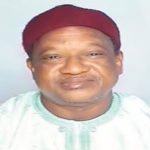His sentiment is indeed timely based on the present situation in the country. The South-west used to be a major player in the agricultural sector and a force to reckon with in foreign exchange earned through farm produce. But today, hunger seems to be staring the region in the face in spite of arable land and good weather. This is the reason people are beginning to more meticulously scrutinize the manifestoes of political aspirants in their agenda for the people as history has shown that beyond the soap-box, many do not have any programme to significantly make life better for the people. On 14th of July, the electorate in Ekiti will vote to elect a successor to the incumbent, Peter Ayodele Fayose. As usual, candidates of the various political parties have started reeling out promises to the electorate. Unfortunately, most of them have not clearly articulated their programmes in writing in a way that makes it possible for the electorate to hold them accountable if and when they are elected. Even the ones in writing hardly enunciate the definite plans of action to realize the programmes highlighted. On this score, Prof. Kolapo Olusola Eleka, the incumbent deputy governor and standard-bearer of the Peoples Democratic Party (PDP) stands out from the pack. He has articulated his agenda in writing, complete with action steps. An assessment of his S.H.I.E.L.D policy document outlining his vision for Ekiti State reveals that he knows the power that the South-west can wield if it embraces agriculture and takes it beyond the theory level of the past years.
With an overall vision of making Ekiti State become an attractive destination for business, tourism and education while promoting the inclusive growth and development of human and natural resources, he promises to give primary focus to agriculture by making it the key driver of the state’s economy and a source of job and wealth creation. He not only indicates his readiness to take proactive steps to tackle the food crisis, which research has stated is now in unprecedented proportions in Africa after taking a turn for the worse in the early 1980’s, but also commits to ensuring that Ekiti state takes the lead by utilizing the abundant resources accruing to the state to make this work. Though Nigeria has not experienced the full brunt of the food crisis, it is caught in the backlash; and the country that once thrived on agriculture and food production as the backbone of its economy, providing 70 per cent of its foreign exchange with abundance of food for the populace, now struggles to feed itself.
Eleka presents a vision of creating a state where every family has enough food to sustain itself and food security becomes a term that ceases to be a threat while farming ceases to go on a decline as it is currently experienced. Majority of existing farmers are old men as most young men prefer to move into wage labour. Furthermore, arable land for large-scale farming continues to dwindle due to civilization. Other factors like shortage of labour and low level of technology also militate against agricultural development. Eleka’s blue print will create a platform that ensures that Ekiti State’s arable land and good weather are put to good use with the introduction of a technology-based platform that will attract youths and consequently make the state a major player in the agricultural sector and return the Southwest to its position of pride as a force in agriculture.
People will have access to arable land for large scale farming. Existing farmers and fresh graduates will be encouraged to invest in and explore the abundant opportunities in farming, thereby stopping the trend of agriculture being seen as job for old and illiterate people. This will be done by creating a platform that will be known as the Ekiti State Agro-Industrial and Commerce Agency (EKSACA) which will primarily provide resources, facilities, tools and machineries to empower and train people towards the exploration and optimal maximization of mechanized agro-industrial ventures. Also, provisions will be made for capital and extension support that will increase the productivity of farmers while partnership with professionals and established international organizations in the agro-allied industry in Nigeria will be fostered to help drive a vast range of agricultural programs and initiatives. Eleka also plans to ensure farmers’ education receive maximum attention based on the knowledge that the problem in Ekiti state is not lack of arable land but absence of useful information and specialized technical skills that mechanized agriculture requires. Consequently, the required process will be put in place to train farmers through robust farmer education and enlightenment programmes to align them with best global skills and practices.
- Obafemi, an agriculturist, writes in from Ise-Ekiti, Ekiti State.






